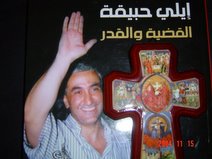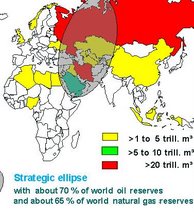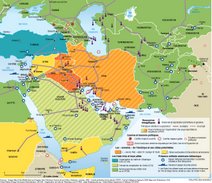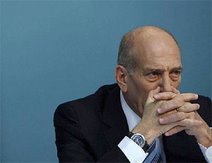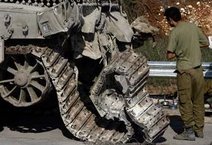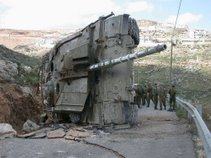
Zionist propaganda....
The parallel between Jerusalem and Mecca is pointless. Jerusalem – Al Quds – was the first place towards Muslims turn in prayer. From a spiritual point of view, this city is as important as Mecca – and it is also a holy city to Christianity.
The “strong emotional attachment” to this place is not reserved to one people, it is common to all Abrahamic faiths. If you can’t understand/admit that point, you simply don’t deserve being in that place.
It is rather ironic to see Zionists using now the “spiritual” card – while the most substantial part of their nationalist/colonial ideology has nothing to do with spirituality.
Some thought about al Quds is so confused. They should read Augustine’s City of God before intending to tell us something coherent about your “emotional attachment” to Jerusalem – if by “emotional” you mean “spiritual”.
“Judaism barely survived without Jerusalem and the temple....”
!!! HOPEFULLY for Judaism, Judaism survived without Jerusalem and the temple. – writing the contrary is factually a lie and theoretically mere Zionist propaganda.
In conclusion, the spiritual attachment to Al Quds is not that exceptional : it is common to ALL Abrahamic traditions.
But Zionists – even/especially when they know nothing about the rich traditions of Jewish spirituality – use the “strong emotional attachment” argument when they need to justify both judaization and illegal settlements (comme d’habitude).
Jews who have a “strong emotional attachment” and genuine commitment with Jewish spirituality don’t support the colonial project and the racist idea that Jerusalem should be reserved to only one people....
It seems hard for most to understand that the City a spiritual tradition refers to is not exactly a material/historical one on which you have to practice ethnic cleansing, deportations and other aggressions.
Give us a break with your Zionist arguments using Judaism only to justify an ethnocratic policy and the ongoing judaization of Jerusalem.
You can check Zionists favorite source by the way : http://en.wikipedia.org/wiki/Judaization_of_Jerusalem
“Judaization” in territorial terms is characterized by Oren Yiftachel as a form of “ethnicization”, which he argues is “the main force in shaping ethnocratic regimes”. Yiftachel identifies Judaization as a state strategy and project in Israel, not confined to Jerusalem alone. He also characterizes the goals of those pursuing a “Greater Israel” or “Greater Palestine” as being driven by “ethnicization”, in this case by “Judaization” and “Arabization” respectively.
Valerie Zink writes that much was accomplished towards the Judaization of Jerusalem with the expulsion of Arab residents in 1948 and 1967, noting that the process has also relied in “peacetime” on “the strategic extension of Jerusalem’s municipal boundaries, bureaucratic and legal restrictions on Palestinian land use, disenfranchisement of Jerusalem residents, the expansion of settlements in ‘Greater Jerusalem’, and the construction of the separation wall.” The attempts to Judaize Jerusalem, in the words of Jeremy Salt, “to obliterate its Palestinian identity” and thicken ‘Greater Jerusalem’ to encompass much of the West Bank, have continued under successive Israeli governments.
Cheryl Rubenberg writes that since 1967, Israel has employed processes of “Judaization and Israelization so as to transform Jerusalem into a Jewish metropolis,” while simultaneously pursuing “a program of de-Arabization” so as to facilitate “its objective of permanent, unified, sovereign control over the city.” These policies, which aim to change Jerusalem demographically, socially, culturally and politically, are said by Rubenberg to have intensified after the initiation of the Oslo peace process in 1993.
Drawing on the scholarship of Ian Lustick, Cecilia Alban writes of how the Israeli government has succeeded in establishing “new powerful, concepts, images, and icons” to explain and legitimize its policies in Jerusalem. The government’s use of the term “reunification” to describe its occupation of East Jerusalem in 1967 is cited as one such example, which in Alban’s view, falsely implies that this area belonged to Israel in the past. Noting the reality of the fear among Israelis that Jerusalem would become redivided under dual sovereignty or internationalization proposals, Alban’s writes that such fears were “exploited politically to justify the forced retention and Judaization of East Jerusalem.”
In a 2008 report, John Dugard, independent investigator for the United Nations Human Rights Council, cites the Judaization of Jerusalem among many examples of Israeli policies “of colonialism, apartheid or occupation”, that create a context in which Palestinian terrorism is “an inevitable consequence”.
Interesting to read Party of God’s role in facilitating the new coalition government of Iraq.
One legacy of 2003 invasion of Iraq is that Hezbollah is now formally part of the Iraqi government, the leader of the Iraqi branch of the party who appears to these days reside most of his time in Iran.
On another matter, gotta smile when reading about “we” and “us” controlling Jerusalem.
Jerusalem, founded around 2600 BCE by a people that pre-date the idea of Jews, Christians or Muslims, has for long periods of past 2500 years been controlled by people whose ancestors are today’s Palestinians, Lebanese, Syrians, Jordanians and Jews.
The “built-up place of Shalem” long-predates the arrival of monolithic religions and while the civil war between the Abrahamic tribes is entertaining, it is a side-show to the real action in human development – the action is in east Asia, south and central Asia and increasingly Latin America and parts of Africa and the interrelationships across those rapidly expanding economies.
What is most interesting about south west Asia to me is not so much the temporary civil conflict between cousins over a pre-Abrahamic city – which is we all suspect a small town that will eventually end up sharing but just haven’t settled yet on a modus operandi for that sharing, which is a trifling matter – but more what will the role be for Turkey in particular – will be succeed in maneuvering itself as a center of commerce and trade in central Asia – and how Turkey’s relationships are developing with other emerging economic powers – that is an interesting subject.
I would love to see a serious look from a Lebanese point of view – what are the commercial, cultural and other opportunities for Lebanon to leverage more out of emerging Turkey....
Arguments should be honest, objective and based upon rational facts, please read Schlomo Sand’s classic book : The Invention of Jewish People.
http://www.amazon.com/Invention-Jewish-People-Shlomo-Sand/dp/1844676234/ref=pd_sim_b_4
“A historical tour de force, The Invention of the Jewish People offers a groundbreaking account of Jewish and Israeli history. Exploding the myth that there was a forced Jewish exile in the first century at the hands of the Romans, Israeli historian Shlomo Sand argues that most modern Jews descend from converts, whose native lands were scattered across the Middle East and Eastern Europe.”













